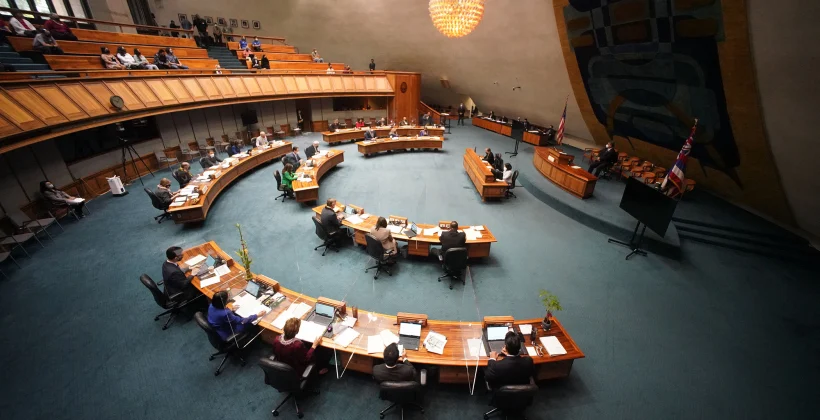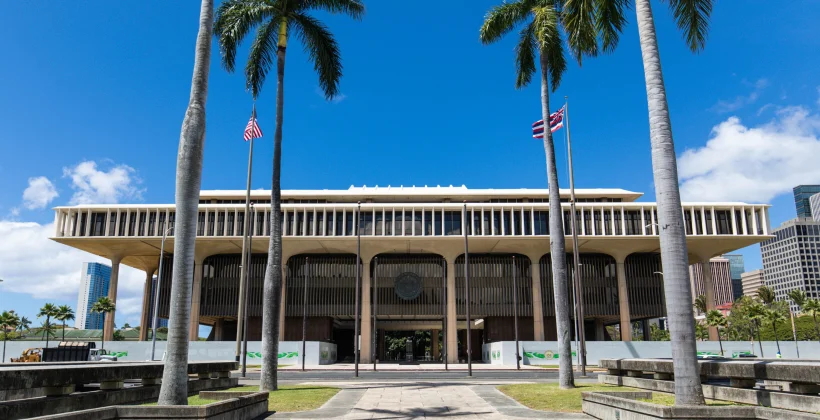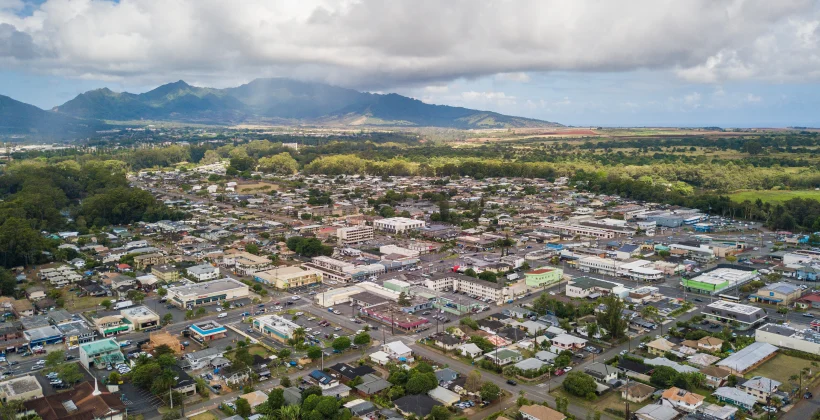Last week, the Hawaii Legislature adjourned after four months of deliberation on several key measures aimed at driving down carbon emissions. Thanks to your engagement through testimony, emails and phone calls to legislators, and opinion letters in local media outlets, a number of measures have successfully moved through the legislative process and are now on the Governor’s desk for signature.
Legislative Victories
Here are some of bills we are excited to see pass:
- HB 1800: Setting a goal to reduce economy-wide emissions 50% by 2030. In 2018, the legislature set a planning goal to achieve a carbon negative economy by 2045. House Bill 1800 updates this goal to include an interim target for the state to achieve a 50% reduction in greenhouse gas emissions from 2005 levels by 2030. The bill also funds a decarbonization pathways analysis to help identify specific and actionable steps to help us reach the goal.
- HB 1801: Encouraging the State to lead by example through energy efficiency. This bill requires state buildings over a certain size to perform cost-effective energy efficiency improvements. State buildings are one of the largest electricity users in Hawaii. This bill will reduce the taxpayer burden of state energy bills, create new jobs in clean energy, and decrease our carbon emissions. Learn more about why so many partners—including Blue Planet, Hawaii Energy, Elemental Excelerator, Ulupono Initiative, Hawaii Solar Energy Association, Chamber of Commerce Hawaii, and IBEW Local 1186—support this bill in the video below.
- SB 3158: Increased access and affordability for mobility options. This bill creates a rebate progress to lower the upfront cost of electric bicycles and electric mopeds, which will increase access to affordable, clean mobility options for more Hawaii residents, with a focus on low-income residents, students, and those who do not own a passenger motor vehicle.
- HB 2089: Closing the renewable energy calculation loophole. This bill fixes a decades-old miscalculation of how the State quantifies the amount of renewable energy on the grid. The old formula gave utilities “double credit” for distributed energy sources like rooftop solar.
- SB 2720: Increasing flexibility for EV-charger rebates. Developing a robust community electric vehicle (EV) charging network remains a critical step in reducing the state’s carbon emissions. Senate Bill 2720 makes programmatic adjustments to Hawaii’s successful EV charging system rebate program. One such change expands the rebate program to charging stations with a single port. Previously, dual-port chargers were required, which created a barrier for smaller properties, businesses, and apartment buildings with parking constraints, or where only one stall is available. The program adjustments in SB 2720 help ensure that the program is adequately and sufficiently deploying rebates to priority locations in furtherance of Hawaii’s clean energy, carbon reduction, and equity goals.
Cause for Concern
While we are celebrating these legislative victories, we’re also expressing our concerns about another measure, SB 2510, that has the potential to push our state energy policy backward. This bill puts into our state planning law a number of unnecessary thresholds for renewable energy on the grid. For example, the bill states that no more than 45% of any one type of renewable energy should be allowed on each island’s grid. Yet islands like Kauai are already over this arbitrary threshold and would arguably need to scale back their progress on renewable energy to conform to this rigid structure under a new state plan. The bill also states that “firm renewables”—like biomass and geothermal—“shall be a minimum of 33 per cent” for each island. This unusual approach does not factor in the variation in available renewable energy resources on different islands or the cost of those resources for customers.
We’ll be requesting that Governor Ige veto SB 2510, and invite you to join us in voicing your concerns. Stay tuned for an action alert next week from Blue Planet on how to submit your request for Governor Ige to veto SB 2510.
Related posts




